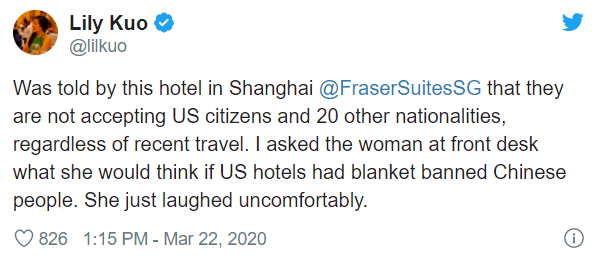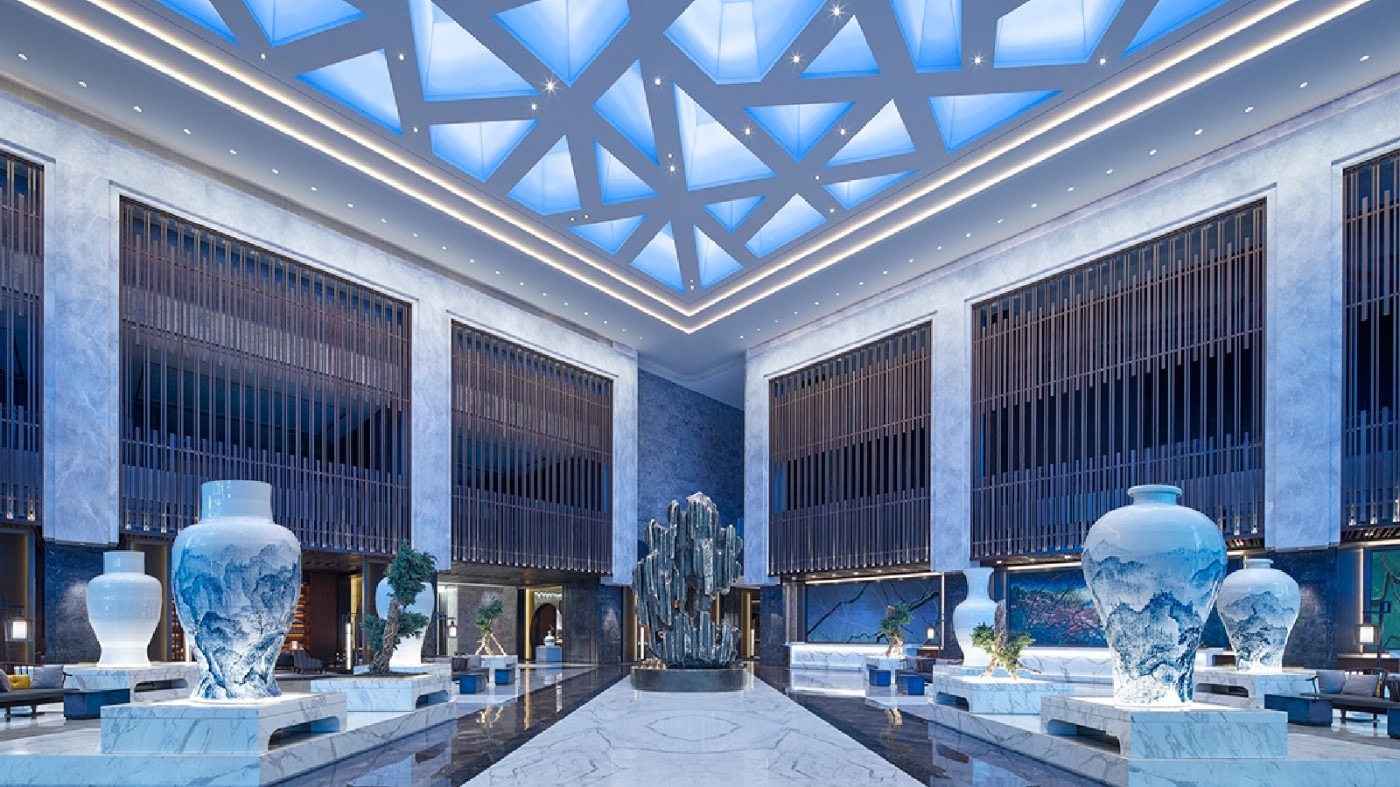Despite Rejections, No Citywide Policy Prevents Foreigners From Staying in Hotels
Despite only a tiny fraction of imported cases of COVID-19 in China actually originating from non-Chinese nationals, foreigners continue to report facing extra scrutiny. Certain apartment rental agents are refusing to extend leases to foreigners, and now others appear to be facing discrimination at the hands of China's hotels.
A high-end hotel in Shanghai was outed on Twitter by a journalist from The Guardian who was denied a room on the basis of her US citizenship. The hotel chain appears not to accept bookings from foreigners holding passports from the United States and 20 other countries. In a responding tweet, the hotel confirmed that it had been advised by Shanghai municipal authorities to not take in guests from "listed" countries.


It is not clear how widespread this advisory was among Shanghai hotels, but another tweet by a reporter from Canadian publication The Globe and Mail indicated that Beijing hotels may be following suit. According to the tweet, reporter Nathan VanderKlippe had called nine Beijing hotels last week, with several of them saying that they would not take in foreigners regardless of how long they had been in Beijing.

It should be noted that the calls would have taken place prior to Beijing’s policy of diverting flights into Beijing, and the hotels may have been taking temporary precautions due to uncertainty. The Beijinger spoke to several major hotels in the city, but none confirmed being advised to turn away foreigners from any country outright. However, at least two hotels contacted said that they were subject to community-level restrictions.
Emilie Zhang, director of public relations and communications for Four Seasons Beijing, told us that while the Four Seasons welcomes guests who have completed the 14-day quarantine, they "would highly recommend our guests to consult Embassy of China in their region while planning to visit Beijing in order to obtain the latest travel policy," while the hotel "can provide incoming guests the information and certain official documents required prior checking-in."
Zhang also noted that the situation is in constant flux, adding, "We are closely monitoring reports of the COVID-19, as well as the laws and guidance of local authorities, and remain prepared to respond to any change in the current situation."
How to prove you've been in Beijing for more than 14 days
Some hotels may ask foreign guests to prove that they have been in Beijing for the past 14 days and will ask you to scan a QR code at check-in, and may even ask for a boarding pass stub or proof of residence. Alternatively, you can also receive proof of whereabouts via text message. We have tested the service and can confirm that this works for foreigners. To receive a confirmation via text message:
- Text CXMYD to 10086 for China Mobile users;
- Text CXMYD to 10001 for China Telecom users, and;
- Text CXMYD to 10010 for China Unicom users.
Once sent, you will receive a text message from another number asking you to confirm the final four digits of your registered ID. Once confirmed, you will receive a third text via the original number listing which cities you have been to in the last 14 days.
Unfortunately, if you are denied a room because of the country you come from, the only thing to do is to find another hotel. Or as one member of staff from a prominent Beijing hotel told the Beijinger: "To be honest, [whether they accept you or not] is also dependent on how each hotel operates – if they want to turn down guests, it's their free will to do so."
READ: Beijing's CDC Addresses Hotel Quarantine Confusion for Families
Images: Nuo Hotel, Twitter
Related stories :
Comments
New comments are displayed first.Comments
![]() Sikaote
Submitted by Guest on Mon, 04/13/2020 - 06:09 Permalink
Sikaote
Submitted by Guest on Mon, 04/13/2020 - 06:09 Permalink
Re: Despite Rejections, No Citywide Policy Prevents...
How to prove you've been in Beijing for more than 14 days
Two problems with this so-called solution.
1. This proves nothing. One can easily travel with a burner phone, leaving their main phone at their residence.
2. Very few Chinese people actually know what all these various "health" certificates are.
Until ALL communities and other places where there are retail shops are educated, one may as well not bother trying to enter if one has non-Chinese characteristics (skin, eyes, hair, etc.)
![]() saxyrobert
Submitted by Guest on Thu, 03/26/2020 - 15:05 Permalink
saxyrobert
Submitted by Guest on Thu, 03/26/2020 - 15:05 Permalink
Re: Despite Rejections, No Citywide Policy Prevents...
well, at least it it not just the US engaged in xenophic biggotry any longer
Validate your mobile phone number to post comments.







